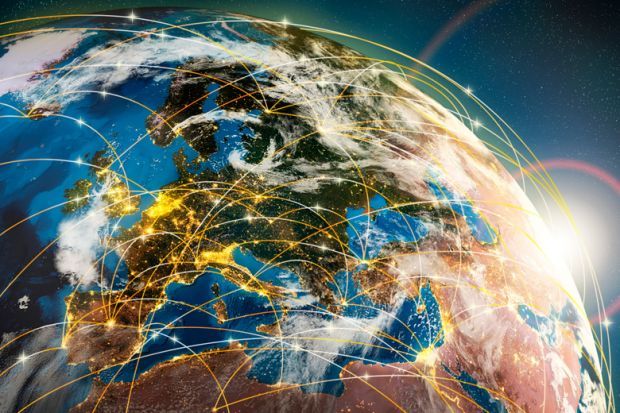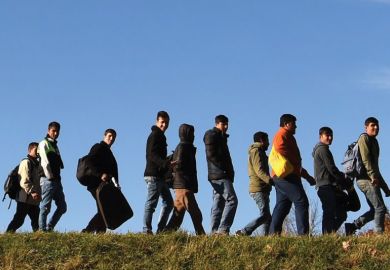It is a truism to say that the world is a smaller, more interdependent place than ever before.
But most of us would also agree that, in 2016, there seems to be a greater risk of fragmentation and polarisation than at any moment in recent history.
In the case of Europe, this is manifested most clearly in the decision by the UK electorate to vote to leave the European Union. But the Brexit referendum did not happen in isolation. One of the underlying currents was the refugee crisis that unfolded over the preceding 18 months or so.
A striking characteristic shared by many of those interviewed by journalists as they arrive in Europe is a hope that they will be able to continue their studies once they have found safe haven. Many of these refugees are young men, who understandably want to flee wars they might otherwise be forced to fight in, and rather than the usual ambition of becoming a footballer, many of those coming from Syria in particular say they wanted to train as doctors or engineers.
As is noted in our coverage of the European Association for International Education (EAIE) conference, for which we spoke to experts who will address these issues, Syria had a good education system before it fell into chaos.
After so many years of civil war, questions inevitably exist about whether the refugees who make it to Europe have the necessary qualifications (or indeed language skills) to make their educational ambitions realistic. But what is certain is that education must play a crucial role if refugees are ever to be integrated, and given any chance of prospering and contributing to their host nations, however long they may stay.
These challenges, and the potential responses to them, are discussed in our in-depth analysis, and we report on a host of other topics that will be discussed and dissected at the EAIE’s annual gathering.
What’s clear to all of us who work in higher education is that internationalisation is a force for good.
Ideas do not respect national boundaries, and the role of the university is one that necessarily spans the spectrum from local to global, in terms of both research and teaching and learning.
For our part, Times Higher Education has for 45 years now been tracking, reporting and analysing all the shifts in the higher education landscape both in the UK, where we are based, and across the globe. Our World University Rankings are shaping university strategies and government policy, and our data team are working directly with universities to help them benchmark and drive up performance within their national systems and relative to the rest of the world.
At a time when Europe itself is under intense pressure – political, economic and social – the role of universities in helping to lead the way to a sustainable and integrated internationalism won’t be easy, but it is more important than ever.
Register to continue
Why register?
- Registration is free and only takes a moment
- Once registered, you can read 3 articles a month
- Sign up for our newsletter
Subscribe
Or subscribe for unlimited access to:
- Unlimited access to news, views, insights & reviews
- Digital editions
- Digital access to THE’s university and college rankings analysis
Already registered or a current subscriber?




